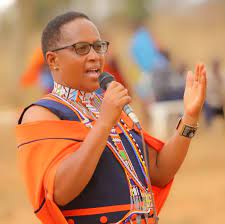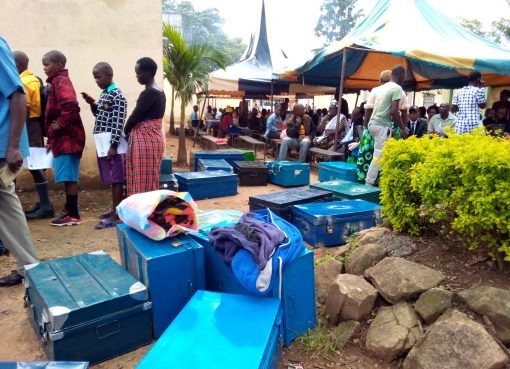Journalists in Uasin Gishu have been sensitized on conflict sensitive reporting, gender and the media role in localization of United Nations Security Council Resolutions (UNSCR 1325) and the Kenya National Action Plan (KNAP) II.
The programme was sponsored by the African Woman and Child Feature Service (AWC), a Non-Governmental media organization championing for gender diversity and equality.
Speaking during the forum, Lilian Bwire, Women Peace and Security Consultant explained that UNSCR 1325 is an international legal framework on gender equality and inclusion which seeks to promote gender equality through its four pillars which include participation and promotion of women in decision making processes politically, socially and economically.
Other pillars are prevention of Gender based Violence (GBV), protection of survivors of GBV and relief and recovery as a result of war, economic and social inclusion.
In addition, she indicated that the KNAP II is a domesticated and localized version of UNSCR 1325 to the Kenyan context.
Bwire indicated that the document is a gender mainstreaming tool in leadership, tool for gender equality which helps in eliminating stereotypes and unequal power which therefore gives investigative journalists room to ensure fair reporting and unearth issues that may lie hidden in the society.
“It is a gender responsive action tool; it ensures fair visibility of men and women in our communication, perpetuating gender stereotypes in terms of writing stories on gender matters,” said Bwire.
She acknowledged the key role the journalist would play in the localization of the UNSCR 1325 and KNAP II to ensure that women peace and security resolutions are owned and implemented at the local levels
“A people-based bottom-up approach to policy making that goes beyond the local adoption of a law, it guarantees the alignment and harmonization of local national, regional, international community driven strategy,” she said.
She noted that Kenya adopted Resolution 1325 through the Kenya National Action plan when much was not realized with the KNAP I in 2020. KNAP was domesticated at the National level and localized at the county level where it directly engages with the local authorities, traditional leaders and it is implemented to the lowest level.
“In Uasin Gishu county, the KNAP exists as in draft form waiting implementation. However Bungoma, Vihiga, Elgeyo Marakwet and Nandi County have already implemented the policy-based approach that goes beyond the local adoption of law,” added Bwire.
On her part Ruth Omukhango from AWC, discussed the barriers to women inclusion and participation in peace processes and peace building, noting patriarchy as the main challenge that hampers women inclusion in key decision-making processes both socially and politically.
“It is important to know if women are in these positions and what roles they are playing. In Sondu, Kisumu County, women have been on the forefront bringing peace among communities that often conflict due to border disputes,” she affirmed.
She added that different counties faced various conflicts and drivers that prevent peace in that region. Uasin Gishu faces conflicts like land ownership, inheritance and succession, gender-based violence and patriarchy in politics especially at the wards level.
A lecturer at Moi University Dr. Andrew Maoga highlighted on Unarmed Civilian Protection (UCP), breaking it down to its principles, approaches and its implications in conflict prevention and promoting the role of women in peace and security.
“UCP works under the principles of Nonviolence, Non-Partisanship, Relationship Building and civilian Immunity. UCP categorizes vulnerable groups as women, children, Journalists, Elderly people and persons living with disability (PWD),” he affirmed.
He added that conflict exists in stages; latent stage, confrontation, crisis, post crisis and outcome but UCP provides early warning and early prevention if adopted as a method of conflict resolution
The training also included a firsthand account of Esther Kangogo member of the county Peace Committee and member of the Council of Elders who shared her experience, challenges and views as a woman peace actor in women peace building and conflict resolutions.
“I am a member of the Miyot Council of Elders and currently there are 30 women in the council of elders. Initially, it was a challenge to join the council of Elders following the traditional practices that believed women should not be a part,” she said.
Kangogo affirmed that as a peace actor, she has played a crucial role in ensuring sustainable peace in homes, helping women who have faced Gender Based Violence and inheritance issues in the regions.
“Many people are not aware of the Matrimonial Act 2013 which states that married women have same rights to married men when it comes to property and households,” added Kangogo
She alluded that they also ensured sustainable peace especially during the electioneering period by liaising with Assistant County Commissioners (ACCs), chiefs and ensuring that people do not desert their homes for fear of violence, threats or intimidation.
Uasin Gishu journalists were urged to abide by the media ethical codes when reporting on sensitive matters by providing context, root causes and possible solutions in their stories and avoid stirring the conflict even further.
Through framing of the narrative, language use, empowering women’s voices and collaboration for peace building, the media practitioners are called on especially when doing stories that deal with women, they should focus more on their contribution to the society as entrepreneurs and peace builders.
Additionally, they should consider working with different organizations that champion for peace which is a key step in peace building.
“As journalists, we should be keen on how we report and frame our stories, often than not women are described as victims therefore we should learn to empathize and not sympathize. Our choice of words should also avoid dehumanizing people or groups,” noted Uasin Gishu Journalists Association Chair, James Gitaka.
By Ekuwam Sylvester and Angela Silayo




